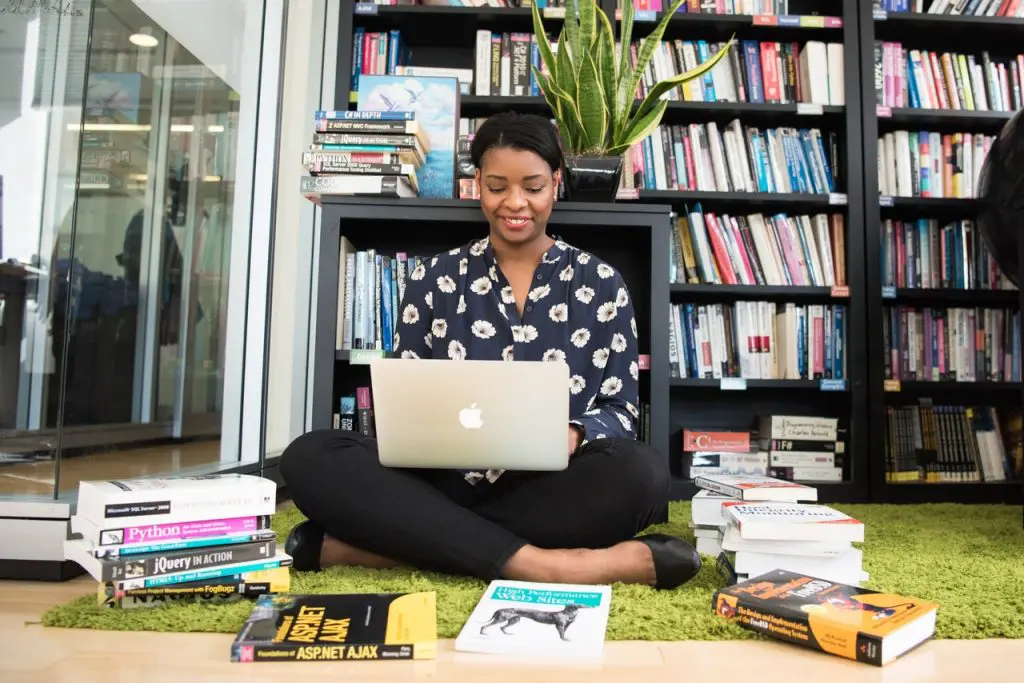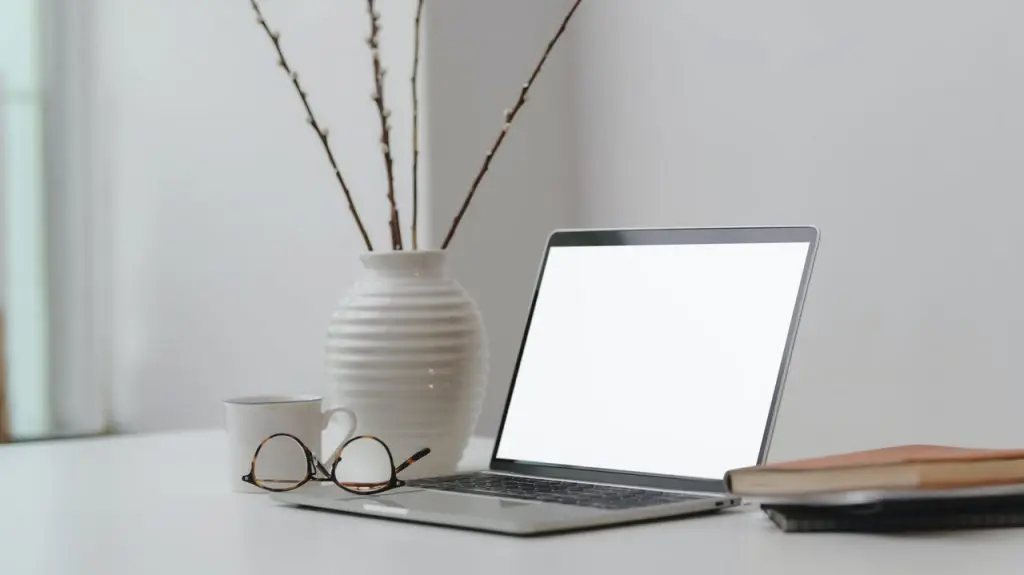Preparing to study is sometimes one of the hardest parts of the entire process. You want to make sure that you’re doing it right and that you’re setting yourself up to be successful. After all, no one wants to spend hours studying only to realize that they don’t remember anything that they were trying to learn. So, you may be wondering just where can I study?
One of the best ways to make sure that doesn’t happen to you is to have good places to study and do homework. You’re looking for a place that’s not going to distract you, and that is going to give you a comfortable environment where you learn best. Keep in mind that not everyone learns well in the same situations, and you definitely don’t want to study somewhere just because everyone else says it’s okay. You want a place that works for you as your best place to study for exams.
Where are the Best Places to Study?
Okay, we just got done saying that you should find a place that works for you rather than a place that everyone is telling you to go, but … there are a few tried and true options that seem to work really well for most people. Take a look at each of these options and see if one of them is going to fit in with your studying or learning style. You may find one that’s one of those good places to study and do homework.
1. Library
The library, whether your school library or a public one, is a great place to go. These places are guaranteed to be quiet (because it’s required), and they have some comfortable sitting areas throughout. You can easily find a chair (and a table if you want one) to study in. Some libraries even have small rooms you can borrow (for free), so you can study completely alone (or even bring a study group along).
2. Outdoors
Outdoors, no matter whether it’s your backyard, the local park, or anywhere else, can be a great place to study. Being in nature can be quite relaxing and calming, which is an important thing when you’re trying to focus. It’s generally quiet, and you breathe in a whole lot of oxygen, which is going to be better for your overall health as well. In fact, it can be better for your memory too.
3. Bookstore
Bookstores tend to have a vibe that is very similar to what you can expect in a library. That means people tend to be quiet, and they still manage to have spaces for you to sit down and read or relax. That means you can feel just like you’re at the library, but they might be open a little bit longer (or on more days) than your local library.
4. Café
These places are often suitable for those who want 24-hour places to study. You’ll have to check out the specific cafes in your area, but many of the larger chains do have 24-hour locations. That can make them great for people who work late hours and need to study in the early morning or those who are taking night classes or just those who do better studying at night.
5. Communal Rooms
If you live in the dorms, you probably have communal rooms that everyone can gather in. While these aren’t great for everyone (because they could also serve as rec rooms and meeting places), these can be a great space to spread out. Just keep in mind that you don’t have control over what else is going on in the area.
6. Family-Owned Restaurants
This is one where you’ll want to play it a little more carefully. These restaurants may be willing to let you study there if you buy something while you’re there. Just make sure to not abuse the privilege. Don’t hold up a table when they’re swamped and keep in mind that if you’re in that table, they’re not getting a paying customer. Even if you order something small, the longer you stay, the more you should be tipping a server because they don’t get another customer while you’re there.
7. Fast Food Restaurants
These are good places to go if you’re looking for food and power, but you don’t mind so much about noise. Chances are you’re going to have a whole lot of families and small children around in these places, but they’re not likely to kick you out if you keep that drink cup in front of you and order at least something small. You can get a power outlet most times too, so it’s an excellent place to hole up for a little while.
What to Look For in Places to Study
If you don’t like the options we mentioned, or if you’re looking to get a few more options that you can switch between, you’ll need to know what to look for in good places to study. These are some of the critical considerations when you’re looking at a place and deciding if you can study there. Things like the atmosphere, the noise, and definitely the furniture in the room can be essential things to look at.
1. Quiet
One of the most important things to look for when you need a place to study is that things are quiet. If there’s a slight lull of noise around you that you can tune out (or mostly tune out), that’s not bad (and sometimes it’s even helpful), but you don’t want any direct or loud noises that are going to constantly pull you out of what you’re doing. It takes too long to get back into it.
2. Orderliness
If you’re surrounded by a mess, you’re going to get distracted. Even if you aren’t a big fan of too much order and organization, it’s a good idea to keep things that are in your direct line of sight orderly while you’re studying. This is going to help keep you from getting distracted. You’ll be looking directly at your work and only your work.
3. Calming
If you walk into a space, you’re probably going to get some kind of vibe about it. When you walk into a sporting event you get an energetic vibe. When you walk into a library you get a more relaxed vibe. You want to study in places that keep you calm. If you feel edgy or anxious while you’re there, you’re not going to get a lot of studying done, and the studying you do get done isn’t going to be as effective.
4. Lack of Distractions
This somewhat goes along with the other things we mentioned, but it’s important on its own as well. You should look for a place that’s not going to distract you and where you’re going to feel focused. That means you don’t want to be somewhere where people are going to be coming and going frequently or where there’s a lot of loud noises. If something is going to pull you out of the moment, that’s not going to help you get good studying done.
5. Plenty of Space
You want to make sure the place you choose has the space you need to spread out. If all you need is a small space to put a notebook, then great, but that doesn’t mean you want someone immediately beside you either. Or maybe you need space for a full poster board or for your textbook, laptop, notebook, and a few random items that help you study. That means you want to have enough space in your environment, wherever that is.
6. Collaborative
You may not want to work with others, or you may not have a study group that you want help from, but maybe you will. Going to a place where you can easily communicate with someone else in case of problems or questions is always a good idea. Or, if you prefer to work alone, just having people nearby even if you don’t talk to them can be a little more relaxing and reassuring for some.
7. Convenient Hours
If you want to study at 2 in the morning, but your favorite place closes at 10 pm, you’re definitely going to have some problems. So, what do you do? You want to make sure you have a place that’s going to be open when you’re ready to study or when you need to study. Make sure you look for a few different places so that when you do have time, you know of at least one place you can go to during those hours.
8. Easy to Get to
If you can’t get there, you’re not going to study there. If you have your own transportation that may mean somewhere you can get to on your bike or somewhere with good parking. If you don’t have transportation, you may need somewhere that’s close to a bus stop or near your school. Make sure you can actually get back and forth quickly, so you’re not spending too much time just trying to get to your study spot.
9. Overall Comfort
You want to be comfortable there, so choose a place that fits what you need. Do you need to have a soda with you while you study? Choose somewhere that you can have a drink with you. Do you need a comfortable chair? That could narrow down the options of where you might want to go. Figure out where you’re most comfortable or what makes you the most comfortable and find a space that lets you meet those needs.
When Should You and Shouldn’t You Study in Your Dorm Room or Bedroom?
What about studying in your room? Is it a good idea to study in a dorm room if you’re at college or in your bedroom if you have your own place? Well, there are some times when it’s going to be the best place to study at home and some times when it’s not going to be such a good idea. We’re going to take a look at what you should know before you set your designated study zone in your bedroom.
1. No: When Your Roommates Are Home – If your roommates are the type that are continually going to be coming into your room or who are going to stay out but will be loud, then it’s not a good idea to try studying in your dorm room. This is the same whether you’re in your specific room of the space or in the main part of the room.
2. Yes: When You’re On Your Own – If your roommates are out of town or even in class, then you can get some good studying done by yourself in this space. Chances are you feel pretty comfortable in your dorm or bedroom, so sprawl out however you’re most comfortable (and in whatever part of the room you’re most comfortable) and make the most of the quiet.
3. No: When Your Space is a Mess – If you have a messy room (which, let’s face it, many of us do), it can be a distraction on its own. You find yourself catching that pile of clothes out of the corner of your eye and that makes you do a double-take. Or you can’t stop staring at those snacks you left piled on the desk. It takes you out of the studying that you should be doing.
4. Yes: When Your Space is Just the Way You Like it – If you have your space organized just the way you like it to be and you have all of your study materials right where you can find and reach them, it might be a great option. When you study in your room, you have everything right there. So if you suddenly need sticky notes, you can pull them out of the desk drawer instead of having to go back to your room for them.
5. No: When You’re Constantly Distracted by Other Things – If you’re always getting pulled in a million different directions by things that need to be done, that’s definitely not going to be a good idea. So, you might find yourself thinking about the laundry that needs doing or the dishes you left from the party last week. Any of those things can be distracting, and if you let yourself get pulled away from your work, you’re not getting anywhere.
6. Yes: When You Can Focus on the Task at Hand – Are you good at compartmentalizing and making sure you only do the things that need to be done? Well, if you can focus entirely on your work and not get distracted by those other tasks that you need to do around the house, then you may be able to get a good amount done while you’re there. You may be able to really stay attentive to your studying.
7. No: When Your Space is Dark and Crowded – Do you have a small dorm room? Does it always seem too dark no matter how many lights you put in there, and no matter how bright the bulbs are? If that’s the case, then you’re not going to get a lot of studying done, and you’re definitely not going to feel comfortable being in there. You’re going to struggle trying to keep track of where you are in the book and possibly hurt your eyes from straining to read.
8. Yes: When It’s Bright and Airy – If you have a bright dorm room or you have plenty of windows that you can sit by to let in more light and air, then it might be a good idea to study in these places. You may be able to really soak in all that brightness even alongside all of the other benefits that we’ve mentioned. This will all help you to feel more comfortable and get some better studying done.
What are the Pros and Cons of Studying at Home?
Is studying at home really a good idea? Can you get ahead by studying in a place that’s so comfortable and normal to you? Well, the truth is that you can, sometimes. But there are definitely times when studying in your own home can actually be more of a problem than it is a benefit. So, what do you do? How do you know if it’s a good idea or a bad one?
1. Pros: You Feel Comfortable – This is your home. That means you’re going to be more comfortable here than anywhere else. If you want to put your feet up on the coffee table and have a soda in the living room you can do that. Making your own rules isn’t allowed anywhere else, so you may want to study in your own home because you get to decide what you do and don’t get to do and be as comfortable as you want.
2. Cons: There’s So Much to Do – In your home, there’s always something else that needs doing. There might be children or pets that need attention and care (even if there’s someone else to take care of their needs at the moment). There’s laundry and vacuuming and dishes and lawn mowing and, and, and. Those things can always distract you, even if you’ve set aside this time specifically for studying.
3. Pros: Easier to Take Breaks – If you’re being careful about your breaks and only taking them after you’ve studied for a while, it can be easier and more fun to do in your own home. After all, all of your stuff is here. So, when it’s break time, you can walk away from your work and grab a snack or walk out into your backyard and enjoy the sun (or snow). And then you can return to your studying after the break is over.
4. Cons: Difficulty Separating Work and Fun – When you study at home, you’re bringing your work home with you. The bad thing is that it can then be difficult to set specific boundaries. You feel like you don’t actually have anywhere to go that isn’t being overrun with your work. You also might feel like you are always being pulled to study more when you’re trying to enjoy yourself. Setting distinct areas for each of these things can be more beneficial.
5. Pros: Everything is Available – Just like studying in your bedroom or dorm room, everything that you need is going to be right there when you need it. You don’t have to worry about running out of ink in your pen or forgetting your highlighter. All of the things that you’re going to need are right in your home so you can find them easily.
6. Cons: No One to Keep You Focused – Even if you’re studying technically by yourself, being in a public situation can keep you a little more focused. You feel like everyone else in the library is studying so you should be too or if you have study group you get even more of that focus. On the other hand, if you’re studying at home by yourself, there’s no one there to help you stay on task.
7. Pros: Extra Resources Are Available (and Free) – If you need to print something, you can do it, and if you need to scan something, look it up on the computer or anything else; it’s all right there. You can easily access all of the resources that you need, and you don’t need to pay extra for them. That’s a great way to make sure that you can get your studying done the way you want.
8. Cons: You May Need Specific Gear – Now, if you don’t have a printer or a computer at home or if you don’t have a large table to study at, it might be a little more challenging to get your studying done. You may need these things in order to be effective, and just because you have your own home to study in doesn’t mean that you have those things available also.
9. Pros: Work Out Loud – Want to read your textbook out loud or practice your essay before the presentation? Not a problem. When you’re in your own home, you don’t have to worry about that. You have the whole space to yourself, so you can do anything you want. You can be loud without anyone staring at you as well.
10. Cons: No Helpful Resources – If you run into a problem and you’re studying at home, you can try to message or call up a friend, but it might take them time to get to you. By then, you don’t really remember what you were doing, or you’ve wasted a lot of time. If you’re studying at school or a library or just about anywhere else, there’s someone you can ask for a little bit of help and advice to keep you going.
Where Should You Study When the Library is Closed?
Libraries are great places to study, and many people love the idea of pulling up a chair at the table or curling up in a recliner at the library to get their studying done. But what if your local library or your school library is closed? What do you do when your number one, the go-to place is suddenly off-limits? Well, here are a few other options for where you could head to.
1. Your Bedroom
One of the first places that you can (and should) be studying is in your room. Whether you live in a dorm on campus or you have your own apartment or home, or you’re living with someone else, your bedroom is a private place that’s all yours. You get to control the environment entirely, and that can help you to be more successful. But this may not be the best place for everyone as it can promote a lot of distraction.
2. In Class
You can actually go to your classes a little early or sometimes even stay a little bit late to do some studying. See if the teacher will leave the room open or if they’re going to be having another class soon and will be sticking around. Then you can study in the back of the room. Chances are they have some things to do too so it will be quiet in there.
3. Study Hall
Okay, in college, they may not actually have anything called ‘study hall,’ but they might have some designated study spaces or even just little areas with comfortable chairs and tables that you can sit at. These are great because most people don’t sit in these areas to chat and goof off, so you shouldn’t have to worry about the people at the next table being too loud.
4. Community Center
Your local community center can be an excellent place for you to do some studying as well. These areas usually have several different rooms, and they might also have some people there to help you out if you get stuck (if your community center doubles as a tutoring center). Plus, there’s plenty of other stuff to do once you get done with your studying.
5. Park
If you’re the type of person who really loves the great outdoors, it can be a great option to study in a park. They have tables, and while there’s talking and general noise around you, none of it is directed at you, so it can be even somewhat soothing to hear in the background. You’ll be able to get some air too, and that’s good for your overall health.
6. Bookstores
Some bookstores are essentially just like libraries. They have tables and comfortable chairs for you to sit in and relax. They may even have little coffee shops in them so you can have something to drink and spread out your books or your laptop. Plus, they have the same atmosphere as libraries, so people tend to be quieter and to keep their conversations to a minimum while they’re browsing.
7. Coffee Shop
Speaking of those coffee shops, you can study there as well. The only thing to think about here is that there could be a lot of people in and out, and depending on the coffee shop, you choose you could have a lot of noise going on in the background. You want to make sure you choose a place that’s going to be relatively quiet. But being around people, even if those people aren’t talking to you, can be a little more soothing for some. Plus, you can get a coffee (or other beverage) and a snack.
8. Tutoring Center
Do you need a little bit of help with your studying? If you do, then a tutoring center can be the perfect place for you. It can allow you to get some help, study quietly, and really get ahead with anything you’re working on. All of that can help you to relax and feel a little better about your studying too because you know you’re doing it right.
9. At Someone Else’s House
If you have a study group, you may want to alternate where you study. Going to someone else’s house can be great because you’re less likely to get distracted. You’re not going to suddenly realize you need to do laundry or the kitchen is dirty, and you’re likely to keep them more on task too.
Wrapping Things Up: Where Should You Study?
So, just where should you study? The answer is going to be different depending on you. Maybe studying at the library is the best way for you to get into the flow. Perhaps you like pulling up a chair at your local coffee shop. Maybe sprawling out on your bed at home works for you. It’s going to be entirely up to your personal preference and your learning style, but studying at a library or even studying in your own home could be one of the best ways for you to get your studying done right.
If you enjoyed this post, check out our other high school study tips.















